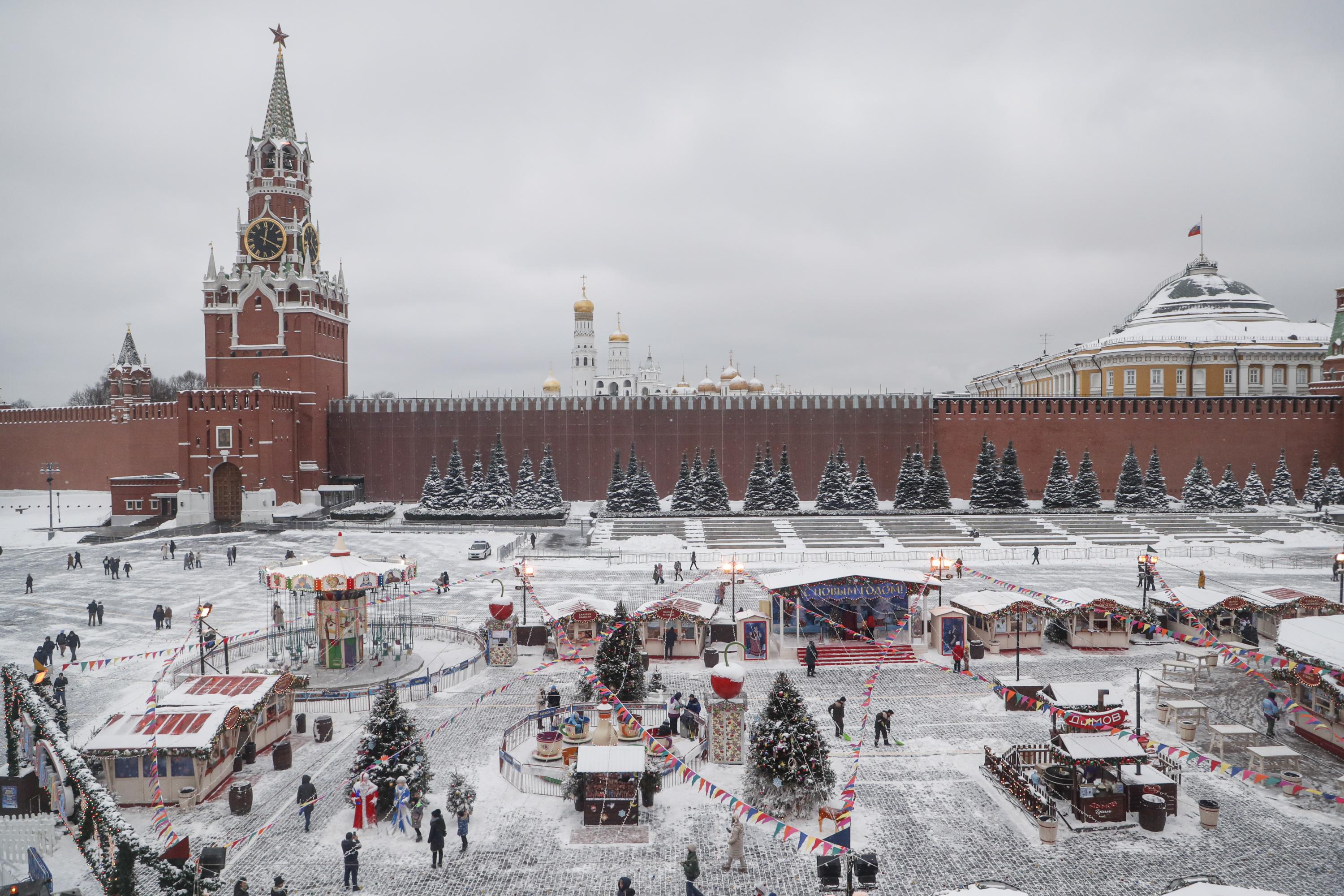Is 'fortress Russia' ready for new Ukraine sanctions?
Sign up now: Get ST's newsletters delivered to your inbox

Washington has teased the possibility of targeting sanctions directly against Russian President Vladimir Putin.
PHOTO: EPA-EFE
MOSCOW (AFP) - US President Joe Biden and Western leaders have described "unprecedented" economic penalties and sanctions "with massive consequences" in the event Russia invades Ukraine.
Here is a breakdown of what those measures could be and what impact they might have:
Putin, oil and gas
Washington has teased the possibility of targeting sanctions directly against Russian President Vladimir Putin, a largely symbolic move mimicking those brought against authoritarian strongmen like former Libyan leader Muammar Gaddafi and Syrian President Bashar al-Assad.
When Mr Biden raised the possibility of targeting Mr Putin this week, he did not specify what shape the sanctions could take, but generally these measures include freezing personal assets abroad and barring foreign bank transactions.
The Kremlin said in response the move would be pointless since Russian officials are barred from holding wealth abroad and that it would damage diplomacy on the Ukraine crisis.
A potentially more damaging step discussed in Western capitals would be to ban Russian banks' transactions in dollars - the key currency on international markets - or excluding Moscow from Swift, a key mechanism of international banking exchanges.
Iran has suffered from having been excluded from the tool and, in the case of Russia, its crucial oil and gas sector would be expected to be badly hit.
Another potential sanctions target is the controversial Nord Stream 2 pipeline connecting Russia with Germany. With construction complete, it is set to double natural gas supplies to Europe.
Also on the table is the possibility of banning exports of crucial technologies to Russia.
Fortress Russia
Russia has weathered waves of Western sanctions in the wake of its annexation of the Crimean peninsula from Ukraine in 2014, which hit the ruble and saw foreign investment dwindle.
In response, Moscow built up what is referred to as "fortress Russia", measures designed to ensure new sanctions will not see the economy or Russia's financial system collapse.
As of Jan 1, the National Wealth Fund, the country's sovereign wealth fund, had assets worth US$182 billion (S$247 billion), or nearly 12 per cent of gross domestic product, according to the finance ministry.
The country also has a small external debt compared to other global powers and a large reserve of foreign currencies accumulated by the central bank.
Moscow has also pursued a "de-dollarisation" policy for several years, calling on its partners, such as China and India, to conduct payments in other currencies.
Last year, Russia said it will be dropping the dollar from its National Wealth Fund.
To minimise the risk of being cut off from Western-controlled financial institutions, Russia launched its own payment system Mir, which is widely used in Russia and across the former Soviet Union.
Boomerang effect
Europe remains dependent on Russian oil and gas, especially now with gas prices soaring across the continent and Moscow allegedly restricting its supply.
Cutting Moscow off from international payment systems would complicate Europe's payments for its gas imports, more than a third of which come from Russia.
There are also fears Russia could use its energy dominance as leverage and turn off the tap.
In response to sanctions in 2014, Moscow put in place an embargo on imports of most food from the West and implemented a strategy for "import substitution".
The initiative calls for Russian companies to replace banned imported goods - such as French and Italian cheese - with local produce, a measure that Mr Putin described as an "opportunity".
Impact on population
While the political elites have felt little to no pressure from Western sanctions, the Russian population has been taking the hit for years.
Living standards have continuously dropped with a steady decline of purchasing power coupled with currently high inflation and a weakening ruble.
While the central bank has since 2014 introduced strategies to protect the national currency, the ruble has still taken a plunge after the recent rise of tensions over Ukraine.
This affects the everyday life of Russians, who are paying more for imported goods, especially smartphones and computers, and finding that travel abroad is less affordable with every passing year.
But despite the country's population feeling the pinch, the Kremlin has not changed its stance and polls show that Mr Putin still enjoys popular support.


